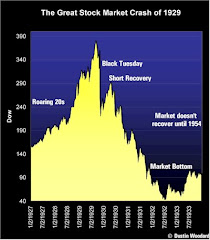
I recently had a look at pensions in BC. They are all included in a website at BC Pension Corp
They must be scrambling to decide what the message will be on the release of this year's information. They are behind on releasing their annual update as they were released in early April for the past couple of years.
The pension report is fairly comprehensive analysis of the plan and for a public sector pension the 2007 annual report is quite detailed and analytical.
BC Teachers Pension
Here are a few notes from it:
* Taxpayers contributions into the plan were $212M in 1998 and increased to $306M by 2007. A 44% hike
* The number of teachers covered by the plan has been flat since 2003. No new teachers hired. But of course the number of pensioners is rising every year, up 7% last year. In 2003 there were 2.3 working for every retiree and now the number is 1.83
* 34% of the active members are in the ages of 50 to 65. Last year 54% of new retirees were aged 56-59. This means 34% of current active members are likely to be eligible for retirement in the next 5 years.
* In 1999 the plan paid out $335M to 15,800 pensioners for an average value of $21,253. last year they paid out $689M to 25,859 for an average of $26,652.
* In 2007 the eligible retirees at 35 years of service had an average salary of $73,000. The pension they would be eligible for would be $41,000 and the value that was required to fund this pension was $683,000 or 16.6 times the annual pension.
* In addition to the $41,000 pension retirees are eligible at age 60 for CPP. If triggered at age 65 this is another $10,896.
* Total pension income at age 65 would be $41,000+$10,896 or $51,896
* In April 2009 the average working wage in B.C. averaged $ 22.31. This would be an income of roughly $46,400 per year.
Statscan
* It appears that teachers in B.C retire up to 10 years younger than the private sector and earn more in retirement than the average working person makes.
In 2005 the last valuation showed the pension fund was short $904M. Based on $16.5B in the fund at year end of 2007 it is safe to assume 20% was lost in the plan or $$3.3B. Also they anticipated making a positive 6% return which would have produced another $1B into the plan. This leaves the plan at least $5B short.
The valuation was due at the end of 2008 and the pension plan administrators knows what the results are. Also they are late in filing their annual report. I suspect it is not a pretty story and they want to be very careful how it is sent out to the media.
When the story is released there will be all sorts of spin and manipulation of the numbers. The game this year is to minimize the shortfalls in the plan. They have created a method for averaging the losses over the next 5 years. So a $5B shortfall now becomes a $1B shortfall when "smoothed" over the next 5 years.
In 2008 the Ontario Teachers plan was going hard after extra money from taxpayers. They wanted to show how large the shortfall was to come up with extra funding. So at that time they showed a $12B shortfall. 2008 Shortfall at Ontario Teachers. Then last year they lost $21.5B on the markets. You would suspect that the $12B and $21.5B would be a shortfall of $33.5B. However, spread out over 4 years the loss becomes $2.5B. 2009 loss at Teachers .
The spin doctors can turn this thing any way they want. Part of the problem is that pensions are a complicated issue. The spin doctors have a large personal vested interest along with politicians and other public sector workers in BC.



No comments:
Post a Comment